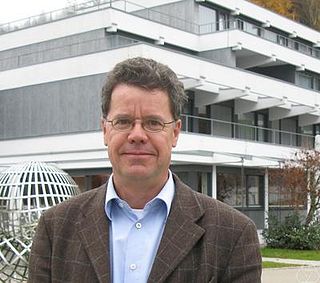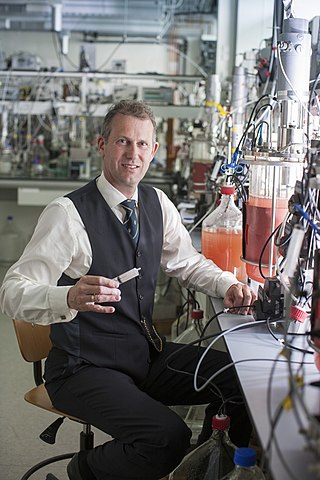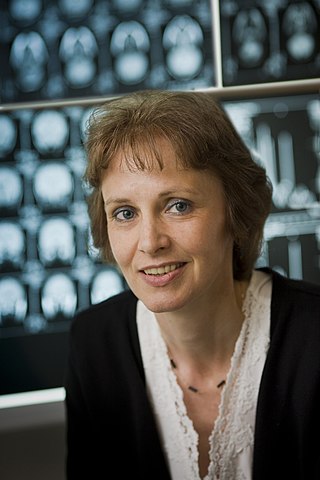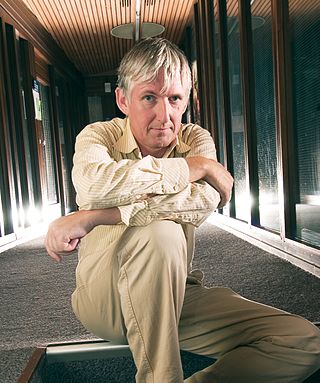
Frits van Oostrom is University Professor for the Humanities at Utrecht University. In 1999 he was a visiting Professor at Harvard for the Erasmus Chair. From September 2004 to June 2005, he was a fellow of the Netherlands Institute for Advanced Study (NIAS). He was awarded the Spinozapremie in 1995. In May 2005 he became president of the Royal Netherlands Academy of Arts and Sciences (KNAW) for a three-year period. He had been member of the same institution since 1994.

Frederik Herman Henri (Frits) Kortlandt is a Dutch former professor of descriptive and comparative linguistics at Leiden University in the Netherlands. He writes on Baltic and Slavic languages, the Indo-European languages in general, and Proto-Indo-European, though he has also published studies of languages in other language families. He has also studied ways to associate language families into super-groups such as controversial Indo-Uralic.

The Spinoza Prize is an annual award of 2.5 million euro, to be spent on new research given by the Dutch Research Council (NWO). The award is the highest scientific award in the Netherlands. It is named after the philosopher Baruch de Spinoza.

Edward Peter Jacobus (Ed) van den Heuvel is a Dutch astronomer and emeritus professor at the Astronomical Institute Anton Pannekoek of the University of Amsterdam.

Arij Lans Bovenberg is a Dutch economist, and Professor of Economics at the Tilburg University and Erasmus University, known mainly due to his contribution to the Dutch debate on population ageing, pension reforms and public finances. Lans Bovenberg was awarded the Spinoza Prize in 2003.

Izak (Ieke) Moerdijk is a Dutch mathematician, currently working at Utrecht University, who in 2012 won the Spinoza prize.

Piet Gros is a Dutch chemist and professor biomacromolecular crystallography at Utrecht University. In 2010 he received the NWO Spinoza Prize for the elucidation of the three-dimensional structure of the C3 protein, which plays a central role in the complement system and contributes to innate immunity.
The Bijvoet Centre for Biomolecular Research is a research institute at Utrecht University. The Bijvoet Centre performs research on the relation between the structure and function of biomolecules, including proteins and lipids, which play a role in biological processes such as regulation, interaction and recognition. The Bijvoet Centre houses advanced infrastructures for the analysis of proteins and other biomolecules using NMR, X-ray crystallography, electron microscopy and mass spectrometry. The institute is named after famous Dutch chemist Johannes Martin Bijvoet, who worked at Utrecht University.

Birgit Meyer is a German professor of religious studies at Utrecht University.

Tjitske Nienke"Cisca"Wijmenga is a Dutch professor of Human Genetics at the University of Groningen and the University Medical Center Groningen. She has been Rector Magnificus of the University since September 2019.

Bert Marc Weckhuysen FRSC is a professor of inorganic chemistry and catalysis at Utrecht University, originally from Belgian descent. Weckhuysen is best known for his developments in operando (micro)spectroscopy; imaging catalysis at macro, meso and micro scales, from the reactor down to interactions between single atoms and molecules. He was a winner of the 2013 Spinoza Prize, and was knighted in the Order of the Netherlands Lion in 2015.

Mike Jetten is a Dutch professor of Microbiology at the Radboud University Nijmegen. He was a winner of the 2012 Spinoza Prize.

Michel D. Ferrari is a Swiss neurologist and professor of Neurology at Leiden University and Leiden University Medical Center. He was a winner of the 2009 Spinoza Prize. He is considered to be the foremost migraine expert of the Netherlands, as well as one of the six top scientist in the field worldwide.

Marten Scheffer is a Dutch ecologist, mathematical biologist and professor of Aquatic Ecology and Water Quality Management at Wageningen University and Research Centre. He was a winner of the 2009 Spinoza Prize. His research focuses on complex systems and their adaptability.

Marjo S. van der Knaap is a Dutch professor of pediatric neurology at VU University Amsterdam and the VU University Medical Center. She was a winner of the 2008 Spinoza Prize. Her research focuses on white matter disorders.

Josina Maria "Jozien" Bensing is a Dutch clinical psychologist. Bensing was director of the Nederlands Instituut voor Onderzoek van de Gezondheidszorg (NIVEL) between 1985 and 2008. Since 1993 she has been a professor of clinical and healthcare psychology at Utrecht University. Bensing was a winner of the 2006 Spinoza Prize.

René Bernards is a Dutch cancer researcher. He is professor of molecular carcinogenesis at Utrecht University and head of the section of molecular carcinogenesis at the Netherlands Cancer Institute-Antoni van Leeuwenhoekziekenhuis. Bernards is a winner of the 2005 Spinoza Prize.

Jan Luiten van Zanden is a Dutch economic historian and professor of Global Economic History at Utrecht University. He is a widely acknowledged specialist in Dutch, European and Global Economic History.

Marileen Dogterom is a Dutch biophysicist and professor at the Kavli Institute of Nanoscience at Delft University of Technology. She published in Science, Cell, and Nature and is notable for her research of the cell cytoskeleton. For this research, she was awarded the 2018 Spinoza Prize.
Louis (Wiep) van Bunge is a Dutch historian of philosophy. He has published mainly on the early Enlightenment in the Netherlands, on Spinoza and on his influence on other thinkers.


















